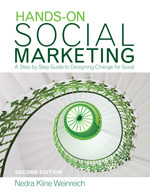 Nowadays you can’t go a week without hearing some celebrity talking about a health or social issue — either their own medical problem or one they feel is important enough to comment on. Generally, this is a good thing because it raises awareness, which may lead to changes in public behavior. Laura Bush recently publicized her own bout with skin cancer, which will hopefully have the effect of increasing awareness of skin cancer prevention and screening. Lance Armstrong may have singlehandedly caused hundreds of cases of testicular cancer to be caught early (pun not intended!), by speaking out about his own experience and encouraging men to screen themselves. Katie Couric felt so strongly about the importance of being screened for colon cancer after her husband died from it that she had an on-air colonoscopy on the Today Show, increasing nationwide testing by 20%.
Nowadays you can’t go a week without hearing some celebrity talking about a health or social issue — either their own medical problem or one they feel is important enough to comment on. Generally, this is a good thing because it raises awareness, which may lead to changes in public behavior. Laura Bush recently publicized her own bout with skin cancer, which will hopefully have the effect of increasing awareness of skin cancer prevention and screening. Lance Armstrong may have singlehandedly caused hundreds of cases of testicular cancer to be caught early (pun not intended!), by speaking out about his own experience and encouraging men to screen themselves. Katie Couric felt so strongly about the importance of being screened for colon cancer after her husband died from it that she had an on-air colonoscopy on the Today Show, increasing nationwide testing by 20%.
But what do you do when celebrities make public statements about an issue that are just plain wrong, and even worse, detrimental to your cause? Tom Cruise’s spoutings off about postpartum depression being merely the result of insufficient exercise and vitamins may have prevented women suffering from the condition to avoid antidepressants or psychiatric treatment that would help them. Anna Nicole Smith endorsed weight-loss drug TrimSpa, for which its marketers were recently fined millions of dollars for deceptive advertising claims. Madonna certainly brought attention to the issue of child adoption, but should she serve as a model for potential adoptive parents? (Angelina Jolie doesn’t think so!)
Bob Brody of Ogilvy has a useful guide on how to create celebrity health campaigns. But how do you do damage control when a celebrity not affiliated with your program spouts off nonsense? For better or worse, when celebrities speak, people listen. Certainly not everybody cares what Paris Hilton or Brad Pitt has to say, but perhaps it’s more likely to be those who do not have the basic health or science knowledge to realize that the beautiful people are speaking bunk.
A British organization called Sense About Science is taking on these celebrity self-appointed advocates and armchair scientists who claim to know the real truth (Tom Cruise: “Here’s the problem. You don’t know the history of psychiatry. I do… There is no such thing as a chemical imbalance.”), by offering good science and promoting respect for evidence on issues ranging from alternative medicine to bird flu, stem cell research and genetic modification of crops. (via Instapundit)
The incorrect statements need to be countered with logic and peer-reviewed research, indeed, but social marketing efforts can take advantage of the celebrity’s status to get out accurate information. Using the story of what the celebrity said as a news peg for your own information gives a reporter both the lure of being able to write about that celebrity again and to cover the conflict and controversy — especially if yours is a well-respected organization taking on a popular personality. And don’t just talk to the media, but contact the person who is spreading the inaccurate information and offer the benefit of your expertise so that if they truly do want to be an effective advocate, they will be able to speak from a position of real authority rather than the flimsy spotlight of the red carpet.
Right now, I’m reading a book sent to me by the publisher called When Illness Goes Public: Celebrity Patients and How We Look at Medicine by Barron H. Lerner, which I think will speak to some of these issues. I’ll revisit this topic once I’ve had a chance to get through the book.
Photo Credit: nicklee
Technorati Tags: social marketing, celebrity, lance armstrong, katie couric, laura bush, tom cruise, anna nicole smith, madonna, angelina jolie, paris hilton, brad pitt, sense about science, health, ogilvy

 Nedra helps nonprofits and public agencies create positive change on health and social issues through social marketing and transmedia storytelling strategies at Weinreich Communications since founding the company in 1995. She helps organizations make a difference for the populations they serve by strategically designing programs that draw on state-of-the-art behavior change techniques, digital media approaches and the power of stories.
Nedra helps nonprofits and public agencies create positive change on health and social issues through social marketing and transmedia storytelling strategies at Weinreich Communications since founding the company in 1995. She helps organizations make a difference for the populations they serve by strategically designing programs that draw on state-of-the-art behavior change techniques, digital media approaches and the power of stories. 